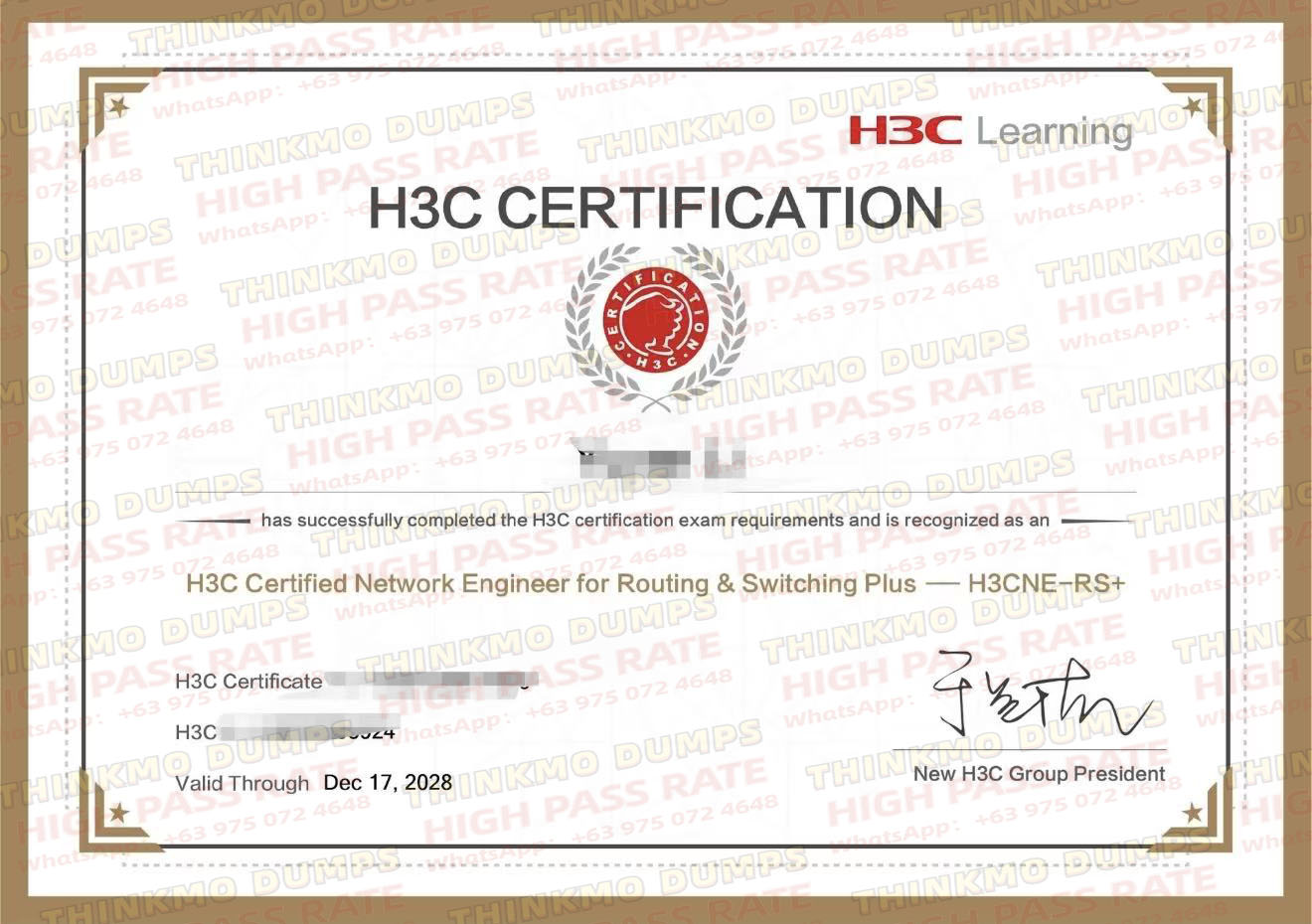Is the CKA Certification Difficult?
Update time:2025-10-23
Many people looking to enter the cloud-native field hesitate when they hear about the CKA (Certified Kubernetes Administrator) certification:
“Isn’t it all hands-on tasks?”
“You have to finish 15–20 tasks in 2 hours — is it really that hard?”
“I’m new to Kubernetes — can I pass?”

In truth, the CKA is moderately difficult — not easy, but absolutely manageable.
Its challenge lies not in deep theory, but in hands-on proficiency and time control.
With the right study approach and consistent practice, those with some foundation can pass in 2–3 months, while beginners can also succeed after reinforcing the basics.
Below, we’ll break down exactly what makes CKA challenging — and how to prepare effectively using dumps and practical exercises.
1. Core Exam Information
Type: CNCF’s Kubernetes Administrator certification — tests production-grade cluster management
Format: 2-hour online hands-on exam, 15–20 tasks, 100-point scale (74 to pass)
Nature: 100% command-line operations — no multiple choice — all tasks completed in a live cluster

2.Main Challenges
Time Pressure: Only 6–8 minutes per task.Poor time management is the #1 failure reason (70% of first-timers fail here).
Troubleshooting Logic: ~30% of points require reverse thinking.Example scenarios:
Node NotReady: Use systemctl status kubelet + journalctl -u kubelet for logs
Pod fails to start: Run kubectl describe pod <name> to locate errors
Foundational Dependencies: You’ll need solid Linux command-line (ssh/vim/systemctl) and Docker basics (image pulling, log inspection).

3.Why It’s Manageable (Three Key Factors)
Open-Book Advantage: You can access the official Kubernetes docs
during the exam — so learn how to quickly find:
Deployment configurations (Workloads section)
PV/PVC details (Storage section)
Focused Topics: 6 major areas cover 90% of the score:
Troubleshooting (30%) · Cluster Management (25%) · Workloads (15%)
Networking / Storage / Security (10% each)
Free Practice Environments:
Killercoda: free browser-based clusters
Kind (Kubernetes in Docker): local multi-node setup
Registration bonus: 2 free Killer.sh mock exams (harder than the real test)
4.Phase-by-Phase Study Plan
Stage 1 — Foundation Review (1 month for beginners)
Learn essential Linux + Docker basics before diving into Kubernetes:
Linux must-know commands:
Service management: systemctl start kubelet / restart kubelet
Log inspection: journalctl -u kubelet --since "10m"
Text editing: Vim basics (i, ESC, :wq)
Docker essentials:
Pulling images: docker pull <image>
Checking container logs: docker logs <container>
Recommended resources:
Use CKA exam dumps with built-in Linux practice sets — to consolidate fundamentals.
Stage 2 — Hands-On Reinforcement (1–2 months)
Use Kind or Killercoda to practice real exam scenarios while matching them to your dumps exercises:
Cluster management: kubeadm upgrade plan
Workloads: rolling updates (kubectl rollout restart <name>)
Resource limits: define CPU/memory requests
Storage: apply PV/PVC YAML templates
Efficiency tips:
Set alias: alias k=kubectl (cuts typing time by 50%)
Keep YAML templates for Services, Deployments, PV/PVC ready for reuse
Stage 3 — Mock Exam Sprint (1 week before test)
Use Killer.sh or high-quality dumps with simulation mode
Simulate 2-hour sessions strictly
Target:
Complete top 10 tasks in 40 minutes
Troubleshooting tasks ≤5 minutes each
Review every mistake and re-practice any task taking >8 minutes
5.Three Common Pitfalls to Avoid
Using GUI tools — Rancher, K9s, etc. are banned;stick to pure CLI (kubectl only)
Memorizing YAML templates without understanding — know what each field means (e.g. requests vs limits)
Forgetting context switches — always run kubectl config use-context <cluster> when multiple clusters exist
6.Summary
The CKA isn’t hard because of technical depth — it’s hard because it demands fluency.
CKA is one of the most valuable entry certifications in cloud-native engineering — it opens the door to Kubernetes admin and cloud ops roles, with starting salaries of 12k–18k RMB in first-tier cities.
Don’t let “fear of difficulty” hold you back — start by brushing up Linux for a week, run your first kubectl command, and you’ll find the “difficulty” quickly fades away.
I'm your man who have the 100% valid dumps , buy it now for 50% off to clear your exam!
Click it ↓↓

“Isn’t it all hands-on tasks?”
“You have to finish 15–20 tasks in 2 hours — is it really that hard?”
“I’m new to Kubernetes — can I pass?”

In truth, the CKA is moderately difficult — not easy, but absolutely manageable.
Its challenge lies not in deep theory, but in hands-on proficiency and time control.
With the right study approach and consistent practice, those with some foundation can pass in 2–3 months, while beginners can also succeed after reinforcing the basics.
Below, we’ll break down exactly what makes CKA challenging — and how to prepare effectively using dumps and practical exercises.
1. Core Exam Information
Type: CNCF’s Kubernetes Administrator certification — tests production-grade cluster management
Format: 2-hour online hands-on exam, 15–20 tasks, 100-point scale (74 to pass)
Nature: 100% command-line operations — no multiple choice — all tasks completed in a live cluster
2.Main Challenges
Time Pressure: Only 6–8 minutes per task.Poor time management is the #1 failure reason (70% of first-timers fail here).
Troubleshooting Logic: ~30% of points require reverse thinking.Example scenarios:
Node NotReady: Use systemctl status kubelet + journalctl -u kubelet for logs
Pod fails to start: Run kubectl describe pod <name> to locate errors
Foundational Dependencies: You’ll need solid Linux command-line (ssh/vim/systemctl) and Docker basics (image pulling, log inspection).
3.Why It’s Manageable (Three Key Factors)
Open-Book Advantage: You can access the official Kubernetes docs
during the exam — so learn how to quickly find:
Deployment configurations (Workloads section)
PV/PVC details (Storage section)
Focused Topics: 6 major areas cover 90% of the score:
Troubleshooting (30%) · Cluster Management (25%) · Workloads (15%)
Networking / Storage / Security (10% each)
Free Practice Environments:
Killercoda: free browser-based clusters
Kind (Kubernetes in Docker): local multi-node setup
Registration bonus: 2 free Killer.sh mock exams (harder than the real test)
4.Phase-by-Phase Study Plan
Stage 1 — Foundation Review (1 month for beginners)
Learn essential Linux + Docker basics before diving into Kubernetes:
Linux must-know commands:
Service management: systemctl start kubelet / restart kubelet
Log inspection: journalctl -u kubelet --since "10m"
Text editing: Vim basics (i, ESC, :wq)
Docker essentials:
Pulling images: docker pull <image>
Checking container logs: docker logs <container>
Recommended resources:
Use CKA exam dumps with built-in Linux practice sets — to consolidate fundamentals.
Stage 2 — Hands-On Reinforcement (1–2 months)
Use Kind or Killercoda to practice real exam scenarios while matching them to your dumps exercises:
Cluster management: kubeadm upgrade plan
Workloads: rolling updates (kubectl rollout restart <name>)
Resource limits: define CPU/memory requests
Storage: apply PV/PVC YAML templates
Efficiency tips:
Set alias: alias k=kubectl (cuts typing time by 50%)
Keep YAML templates for Services, Deployments, PV/PVC ready for reuse
Stage 3 — Mock Exam Sprint (1 week before test)
Use Killer.sh or high-quality dumps with simulation mode
Simulate 2-hour sessions strictly
Target:
Complete top 10 tasks in 40 minutes
Troubleshooting tasks ≤5 minutes each
Review every mistake and re-practice any task taking >8 minutes
5.Three Common Pitfalls to Avoid
Using GUI tools — Rancher, K9s, etc. are banned;stick to pure CLI (kubectl only)
Memorizing YAML templates without understanding — know what each field means (e.g. requests vs limits)
Forgetting context switches — always run kubectl config use-context <cluster> when multiple clusters exist
6.Summary
The CKA isn’t hard because of technical depth — it’s hard because it demands fluency.
If you strengthen your Linux/Docker basics, practice 1–2 hours daily, and master time control through dumps, you’ll likely pass within 2–3 months.
CKA is one of the most valuable entry certifications in cloud-native engineering — it opens the door to Kubernetes admin and cloud ops roles, with starting salaries of 12k–18k RMB in first-tier cities.
Don’t let “fear of difficulty” hold you back — start by brushing up Linux for a week, run your first kubectl command, and you’ll find the “difficulty” quickly fades away.
I'm your man who have the 100% valid dumps , buy it now for 50% off to clear your exam!
Click it ↓↓

Hot article
-
 1
1 1. ThinkMo Precise Question Bank: Ace HCIE Written
上传:2026-01-23
-
 2
2 Triple H3CNE/H3CSE Passes | ThinkMo Christmas Succe
上传:2025-12-25
-
 3
3 Success Streak: ThinkMo’s Dec HCIE-Datacom Win
上传:2025-12-24
-
 4
4 ThinkMo Guide: Cisco & Huawei Certification Com
上传:2025-12-22
-
 5
5 Pass CCIE/CKA Exams with ThinkMo’s Top Question B
上传:2025-12-19








